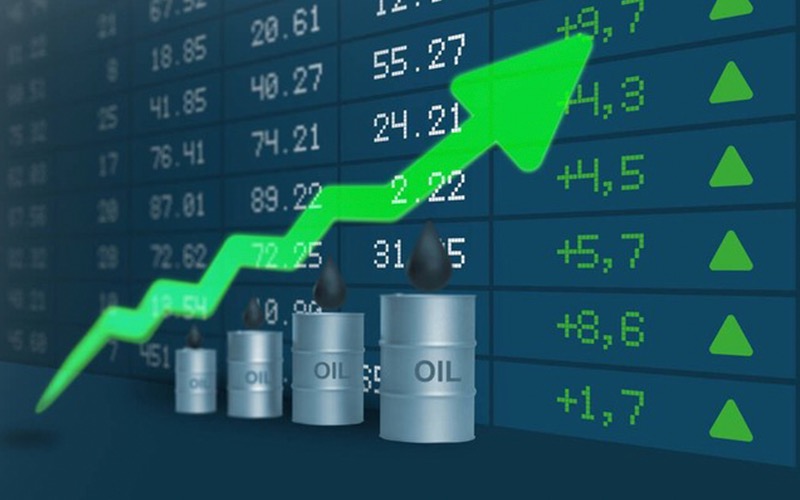Federal Reserve officials warn: Trump's policies may trigger long-term high inflation, and the US economy faces new challenges!
2025-07-04 09:45:37
Inflationary pressure may continue for a long time
Policy adjustments trigger complex reactions
In a speech prepared for an economic conference in Germany, Bostic made it clear that the U.S. economy will not experience only short-term price fluctuations as traditional economic models predict when adjusting to the Trump administration's trade policy and other new policy adjustments. Instead, this process may take a year or even longer to fully digest. He stressed that geopolitical developments and policy uncertainties will further prolong this adjustment period, exposing the economy to continued inflationary pressures.
Concerns about steadily rising inflation <br/> Bostic predicted that if his judgment is correct, the US economy may enter a period of high inflation for a long time. He pointed out in particular that inflation will not show a sharp surge, but will gradually penetrate all levels of the economy in a steadily rising manner. This mild but persistent inflationary pressure may affect consumers' inflation expectations. Once consumers begin to expect prices to continue to rise, it will be significantly more difficult for the Fed to control inflation. This is undoubtedly a severe challenge for the Fed.
Labor market healthy but uncertainty remains
Employment data is strong
Bostic mentioned that the latest employment data showed that the U.S. labor market remained healthy. Job growth exceeded expectations, and the unemployment rate fell slightly to 4.1%, showing economic resilience. These data show that the labor market has not yet shown signs of deterioration that would require the Federal Reserve to cut interest rates in advance. However, Bostic also reminded that strong employment data cannot cover up the uncertainty in the economy.
The economic outlook is full of uncertainty
Despite the good performance of the job market, Bostic believes that the current US economy is highly uncertain in terms of employment, growth and inflation. He pointed out that the potential impact of Trump's policies, geopolitical tensions and the complexity of the global economic environment make the economic outlook difficult to predict. In this context, the Fed's rash adjustment of monetary policy may bring greater risks.
Why the Fed sticks to its "wait-and-see" strategy
Monetary policy remains cautious
Facing pressure from the Trump administration to immediately cut interest rates, Bostic made it clear that now is not the time to make major adjustments to monetary policy. Since December last year, the Fed has kept its policy interest rate unchanged and adopted a "wait-and-see" attitude. Bostic believes that this cautious stance is appropriate in the current highly uncertain environment. He stressed that a hasty rate cut could exacerbate inflationary pressures and cause greater harm to the economy.
Trump's policies increase inflation risks
Bostic specifically mentioned that the Trump administration's trade and other policies may cause inflationary pressure to last longer than expected. In particular, the long-term debate and uncertainty surrounding tariff levels will make it difficult for companies to quickly adapt to the new environment, thereby pushing up prices. He pointed out that this "protracted" policy discussion will further prolong the upward cycle of inflation and bring more challenges to the Fed's decision-making.
Double test for enterprises and consumers
The difficult road for enterprises to adapt to new policies
Bostic's speech also touched on the challenges facing businesses. He said that it may take a year or even longer for American companies to adjust their supply chains, pricing strategies and operating models to cope with changes in trade policies and other policies. This long-term adaptation process may lead to higher production costs, which in turn pushes up the prices of goods and services, and ultimately pass it on to consumers.
Consumer psychology faces shock
As inflationary pressures continue, consumer psychology may be significantly affected. Bostic is concerned that if inflation expectations take root among consumers, it may change consumer behavior, such as reducing non-essential spending or increasing savings. This will not only affect economic growth, but may also further exacerbate economic uncertainty.
summary
Bostic's latest statement paints a complex and challenging economic picture for us. Under the influence of Trump's policies, the US economy may face a long period of high inflation, and both businesses and consumers will experience a difficult adaptation process. The Fed chose to remain cautious at this critical moment and avoid premature interest rate cuts, showing its emphasis on long-term economic stability. However, policy uncertainty and geopolitical risks are still the sword of Damocles hanging over the economy. In the future, can the US economy remain resilient under inflationary pressure, and how will the Fed balance the goals of growth and stability? These issues deserve continued attention.
- Risk Warning and Disclaimer
- The market involves risk, and trading may not be suitable for all investors. This article is for reference only and does not constitute personal investment advice, nor does it take into account certain users’ specific investment objectives, financial situation, or other needs. Any investment decisions made based on this information are at your own risk.










